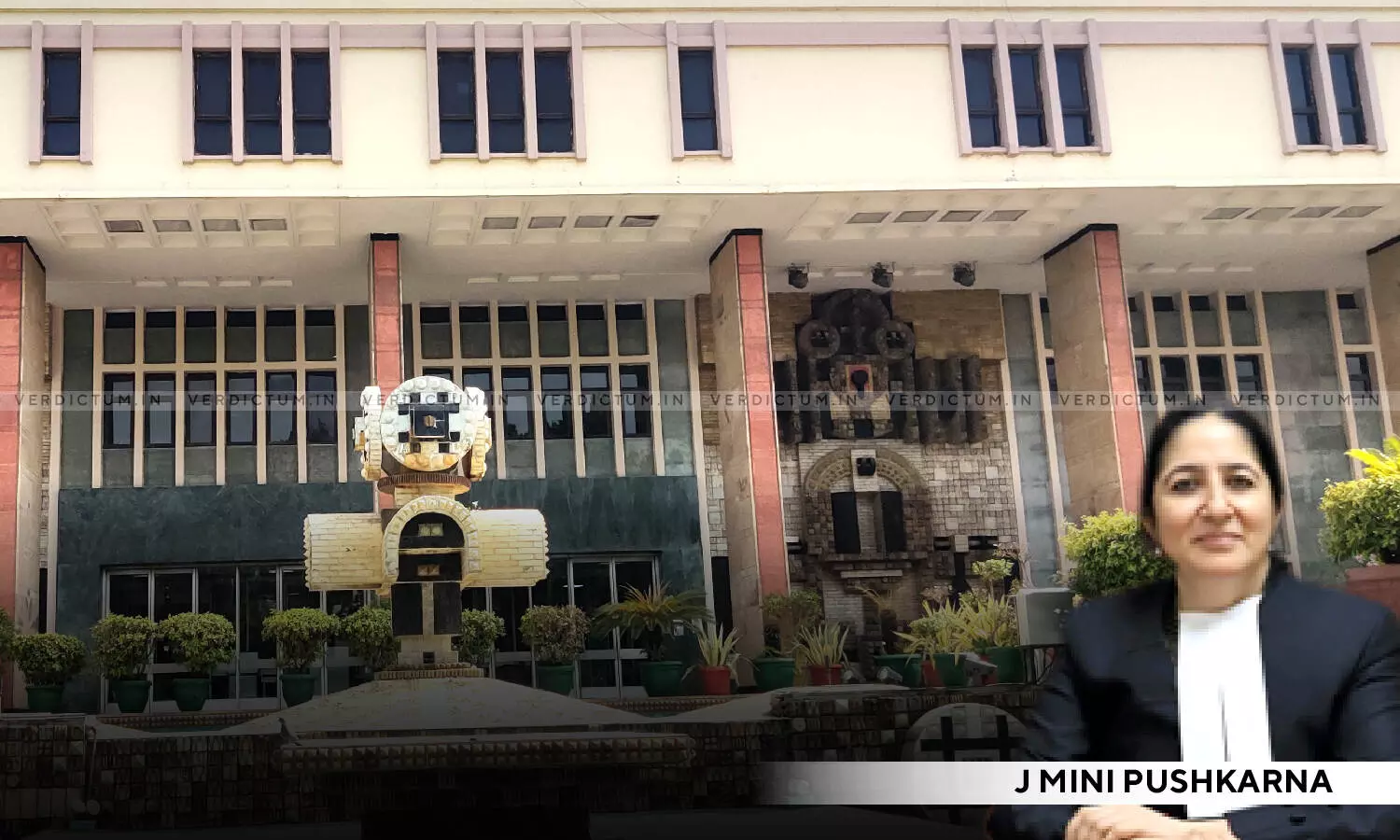
If Disobedience Of Order Is Result Of Compelling Circumstances, A Party Cannot Be Held Guilty Of Contempt: Delhi HC
 |
|The Delhi High Court observed that if the disobedience of an order is the result of some compelling circumstances, a party cannot be held guilty of contempt.
The Court observed thus in a petition being filed, alleging willful disobedience of the order passed by the High Court and orders passed by the Arbitral Tribunal.
A Single Bench of Justice Mini Pushkarna held, “It has been held time and again that contempt jurisdiction is a powerful weapon in the hands of the Courts, and the said proceedings being quasi-criminal in nature, the standard of proof required in these proceedings, is beyond all reasonable doubt. Thus, unless a Court is satisfied beyond a reasonable doubt, the jurisdiction under the Contempt of Courts Act, 1971, ought not to be exercised. Courts have to adopt a cautionary approach and a sentence for contempt cannot be imposed, on mere probabilities. The act has to be committed willfully, intentionally, deliberately, and knowingly, before a party can be proceeded under the Contempt of Courts Act. Thus, if the disobedience of an order is the result of some compelling circumstances, then, a party cannot be held guilty of contempt.”
The Bench said that to punish a contemnor, the disobedience should be willful and the element of willingness is an indispensable requirement to hold a party guilty of contempt.
Advocate Rohan Jaitley represented the petitioners while Advocate Abhimanyu Mahajan represented the respondents.
In this case, the petitioners were the directors and shareholders of the respondent company which was engaged in the business of manufacturing and export of garments. In 2019, a Memorandum of Understanding (MOU) was executed amongst all the shareholders and directors of the company and in terms of the said MOU, the respondent i.e., the shareholder and director was to purchase the entire shareholding of the company from the petitioners and thereafter, was to be responsible to run the affairs of the company. Subsequently, disputes arose between the petitioners and the respondent, wherein it was alleged by the petitioners that the respondent had failed to discharge his obligation under the MOU and was using the premises of the company for commercial gains of his other entities.
Thus, a petition under Section 9 of the Arbitration and Conciliation Act, 1996 (A&C Act) was filed by the petitioners praying for a direction to restrain the respondent from disposing of/alienating, siphoning of, or in any manner creating any third party interest or charge in the assets of the company. An Arbitrator was appointed and the petition was disposed of. The Arbitrator directed that till the disposal of the arbitral proceedings, the respondent acting for and on behalf of the company shall continue to pay EMIs into the loan account of the company. Such order was assailed by the respondents via an appeal but the same was dismissed. It was the case of the petitioners that the respondents did not comply with the direction of the Arbitral Tribunal and failed to pay any amounts towards the EMIs. Also, the respondent was held guilty of contempt by the High Court.
The High Court in the above regard noted, “… this Court has to adjudicate whether in the present case it has been established without any element of doubt that the respondents are guilty of contempt. … since the respondent no. 2-company is undergoing CIRP, all the assets and management of the respondent no. 2-company are with the Resolution Professional. Further, the liability of loan installments, in the form of claim submitted by the South Indian Bank, is also with the Resolution Professional. Thus, the respondent no. 1 has no control over the assets, management and liabilities of respondent no. 2. Thus, it is manifest that the respondent no. 1 has been unable to pay the EMIs to the bank due to his financial inability and constraints, due to circumstances, as brought forth before this Court.”
The Court added that in order to establish contempt, there must be intentional and deliberate attempt to consciously violate an order, however, the present is not a case where it can conclusively be said that respondents have willfully and deliberately disobeyed the order passed by the Court and the Arbitral Tribunal.
“Having given thoughtful consideration to the facts and circumstances of the present case, and considering the material on record, it cannot be said that there is any willful and deliberate disobedience by the respondents of the order passed by this Court and the learned Arbitrator. No merit is found in the present petition. Accordingly, notice to show cause as to why the respondent no. 1 should not be punished under the Contempt of Courts Act, is hereby discharged”, it concluded.
Accordingly, the Court dismissed the petition.
Cause Title- Rajan Chadha & Anr. v. Sanjay Arora & Anr. (Neutral Citation: 2024:DHC:4931)
Appearance:
Petitioners: Advocates Rohan Jaitley, Akshay Sharma, Bhuvnesh Sehgal, and Dev Pratap Shahi.
Respondents: Advocates Abhimanyu Mahajan, Rakesh Kumar, A. Mishra, Sahil, and Nidhish Gupta.